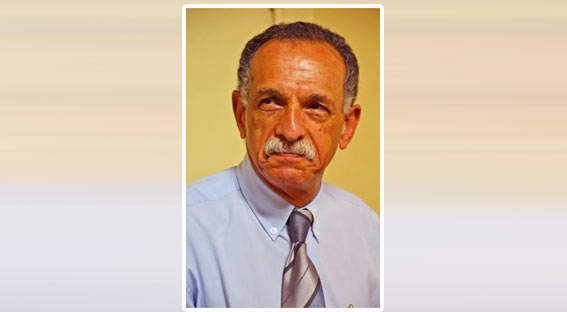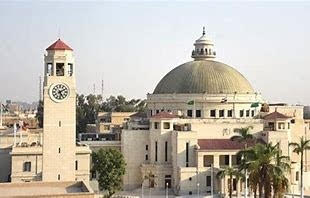The entire world is intensely and anxiously following the ramifications of the Russia-Ukraine war, including those of the military operations on the ground, and those of the political tug of war between the world’s super powers. It is obvious that a relentless war is ongoing, a war that goes beyond military operations. On one side, Russia unyieldingly defends its national security; on the other, the US persistently attempts to debase Russia and disallow its rightful place as a world super power. The sanctions imposed on Russia by the West, through precipitate American recklessness and disgraceful European subordination, were met by calculated response by Russia. The fallout from the sanctions was curbed, and even redirected against those who imposed them in the first place. So much so, that the question begs an answer as to whether the sanctions would achieve their purpose against Russia or would backfire in the face of those who perpetrated them.
The question remained open throughout the past weeks, with numerous analysts and politicians endeavouring to figure out an answer. That is, until an authority on international politics, a prominent American who is in fact an emblem of the American political mindset, assessed the situation and expressed his view on how to deal with the war in order to turn it from global wreckage to a salvation of peace and stability.
This figure is none other than Nobel Laureate Henry Kissinger who at 99 is still America’s old fox and shrewd diplomat. Mr Kissinger was US Secretary of State in 1973 – 1977, and US National Security Advisor in 1969 – 1975. It was because of Mr Kissinger that Egypt’s President Anwar Sadat (1918 – 1981) took the decision, in October 1973, to negotiate a peace settlement with Israel following the spectacular triumph of the Egyptian army which had achieved the hitherto impossible feat of crossing the Suez Canal and fighting the Israeli army in Sinai. President Sadat had met Mr Kissinger who told him that the US would not allow any Israeli defeat, and that it was sufficient for Egypt to have achieved a tactical victory that would give it advantage on the negotiating table. Accordingly, President Sadat addressed the Egyptian National Assembly, saying he could not fight the US, and would negotiate peace. The negotiations led to the peace agreement with Israel in 1979, through which Egypt regained Sinai, the land Israel had occupied in 1967 – 1973.
Last month, Mr Kissinger talked of the Ukraine war at the World Economic Forum in Davos, via video conferencing. It is no surprise that the ramifications of the Russia-Ukraine war was on top of the Davos Forum agenda. I will present here excerpts of Mr Kissinger’s view as presented to the Forum. Mr Kissinger said that Ukraine must become a buffer zone between Russia and the West, taking the form of a neutral State that would work as a bridge between Russia and Europe. He said that Ukraine should exercise wisdom and cede territory to Russia in order to work a permanent peace agreement during the coming weeks. Mr Kissinger said that negotiations need to begin in the next two months before the situation creates upheavals and tensions that will not be easily overcome.
He warned the Ukrainian government and its western allies that: “Pursuing the war beyond that point would not be about the freedom of Ukraine, but a new war against Russia itself”, and urged European leaders to not lose sight of Russia’s place in Europe and risk the country forming a permanent alliance with China, which would in turn heighten global tension.
According to Mr Kissinger, persistence of the Ukraine war does not serve US interests; the force on the ground is in the favour of Russia, especially in regions adjacent to Russia in east Ukraine. Russia has been able to absorb the impact of part of the economic sanctions it was subjected to, he said, suggesting that European countries are now the ones that feel threatened by any cut-off of Russian gas. Mr Kissinger said that the division of Ukraine should be accepted by both Kiev and NATO.
Apart from Mr Kissinger’s view, the Cairo daily al-Ahram has been publishing worthy readings of the situation in Ukraine by the paper’s correspondent in Moscow, Sami Emara. I would like to refer to some excerpts from Dr Emara’s analysis.
Many European countries are crying over spilt milk, Dr Emara wrote, saying that these countries are now giving an ear to the advice of Hungary’s Prime Minister who was the first to reject the EU’s decisions to boycott Russian gas, and to accept Russia’s conditions to pay for it in rubles.
To quote Dr Emara, once Hungary announced it would not comply with the EU decision to boycott Russian fuel, it was remarkable that Germany, France, Italy, and other European countries started reconnecting with Russia, looking to reach an agreement to resume importing Russian gas. “And here are the presidents of France, Italy, Germany and Austria personally contacting Putin to discuss global food security, and the situation in Ukraine,” Dr Emara wrote, adding that Putin stressed that resolving such issues hinges on lifting the sanctions against Russia.
Would the West adopt a realistic look vis-a-vis give the Ukrainian crisis? Would NATO recognise that the boycott and sanctions against Russia are not achieving their objectives? Does the EU realise that it is being disgracefully dragged behind American belligerence and arrogance?
Watani International
10 June 2022










